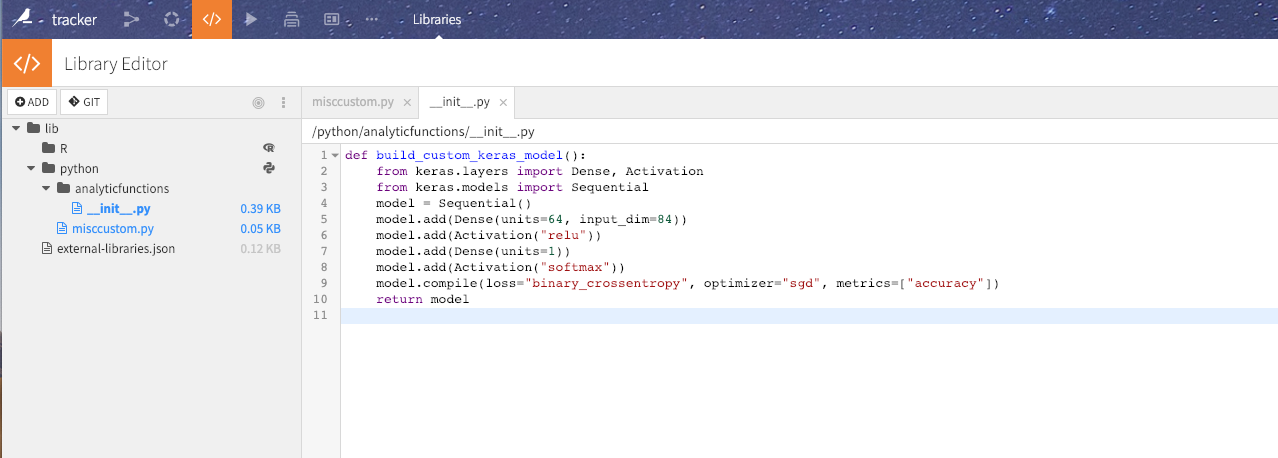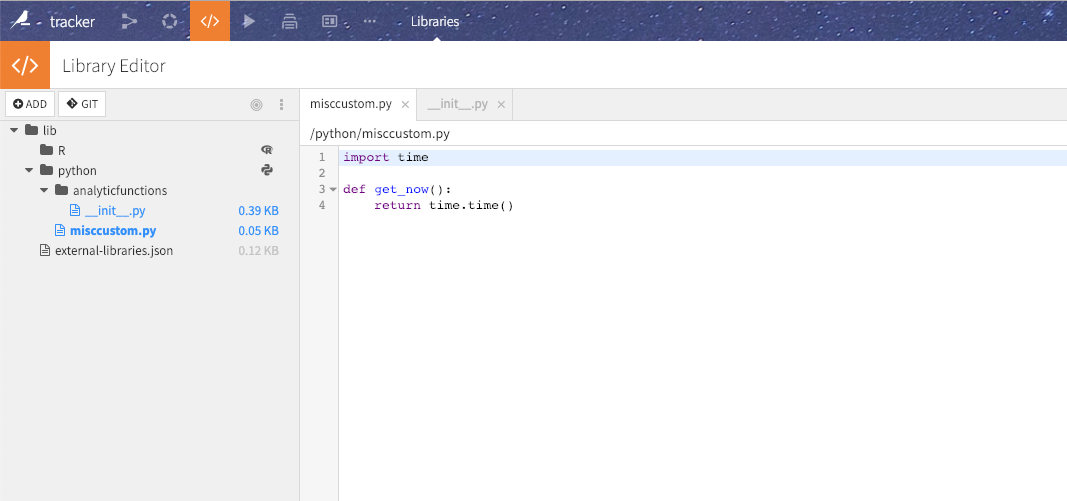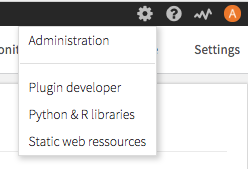Reusing Python code¶
When you write a lot of Python code in a project, or across projects, you will often want to make reusable parts of code.
DSS provides several mechanisms for reusing Python code:
Packaging your code as functions or modules, and making them available in a specific project
Importing code that has been made available from one project to another
Packaging your code as functions or modules, and making them available in all projects
Packaging your code as a reusable plugin, and making it available for coder and non-coder users alike
Sharing Python code within a project¶
In each project, you can write Python modules in the Library editor. The project’s library editor is available by going into the “Code” universe (orange), and selecting the “Libraries” tab.

You can then write code under a “Python source” folder, i.e. a folder that has the “Python” icon associated to it.
Modules that are written here are automatically available in all Python code in the same project. Import rules are the regular Python rules.
For example, to use the function shown in the above image, use:
from analyticfunctions import build_custom_keras_model
model = build_custom_keras_model()
or:
import analyticfunctions
model = analyticfunctions.build_custom_keras_model()
Note
Don’t forget that if you create subfolders in a Python source folder, each folder must have a __init__.py file in order to be a valid Python module
For a file at the root of the library editor:

Use:
from misccustom import get_now
the_time = get_now()
or:
import misccustom
the_time = misccustom.get_now()
Working with multiple source folders¶
By default, the Library editor contains two top-level folders, “python” and “R”, which are respectively the root folder for Python and R code.
You can create other folders that will also act as Python source folders, i.e. that will be added to the PYTHONPATH (or sys.path) of the Python processes of the project.
Working with multiple source folders is mainly useful when importing code from external Git repositories. When using this, addition of the new folders is automatic.
To manually edit the list and order of the Python source folders, open the external-libraries.json file in the library editor and edit the pythonPath list. All paths must be relative to the root of the library editor.
Importing libraries from other projects¶
If you have created libraries in a project A, you can import them in project B. The libraries of project A will be added to the source path of all code running in project B.
Go to the library editor of project B
Open the
external-libraries.jsonfileEdit the
importLibrariesFromProjectslist and add the project key (which appears in the URL, i.e. not the project display name) to itSave the
external-libraries.jsonfile
You need to have “Read project content” permission on A and “write project content” on B.
Sharing Python code globally¶
In addition to the per-project Python library editor, there is another global Python library editor for the whole instance. The global Python library editor is available from the “Settings” menu.

Modules that are written here are automatically available in all Python code in all projects. Import rules are the regular Python rules (see above for more information)
Permissions¶
In order to use the global Python library editor, you need to be granted the global (group-level) permission “Edit lib folders”
Caution¶
Putting code in the global library increases the risk of having clashes or conflict. Generally speaking, it is preferable to use per-project libraries.
Libraries in the global folder will be importable in all Python code, regardless of the active code environment. You might need to ensure that your code is compatible with both Python 2 and Python 3.
Although global libraries are included in API node service packages, they are not included in project bundles.
Manual editing of code library folders¶
Although not recommended, if you have shell access to the DSS machine, you can modify the library folders directly:
Per-project library folder is in
DATA_DIR/config/projects/PROJECT_KEY/libGlobal library folder is in
DATA_DIR/lib/python